Deer Droppings On Plants: Is Fertilizing With Deer Manure Safe
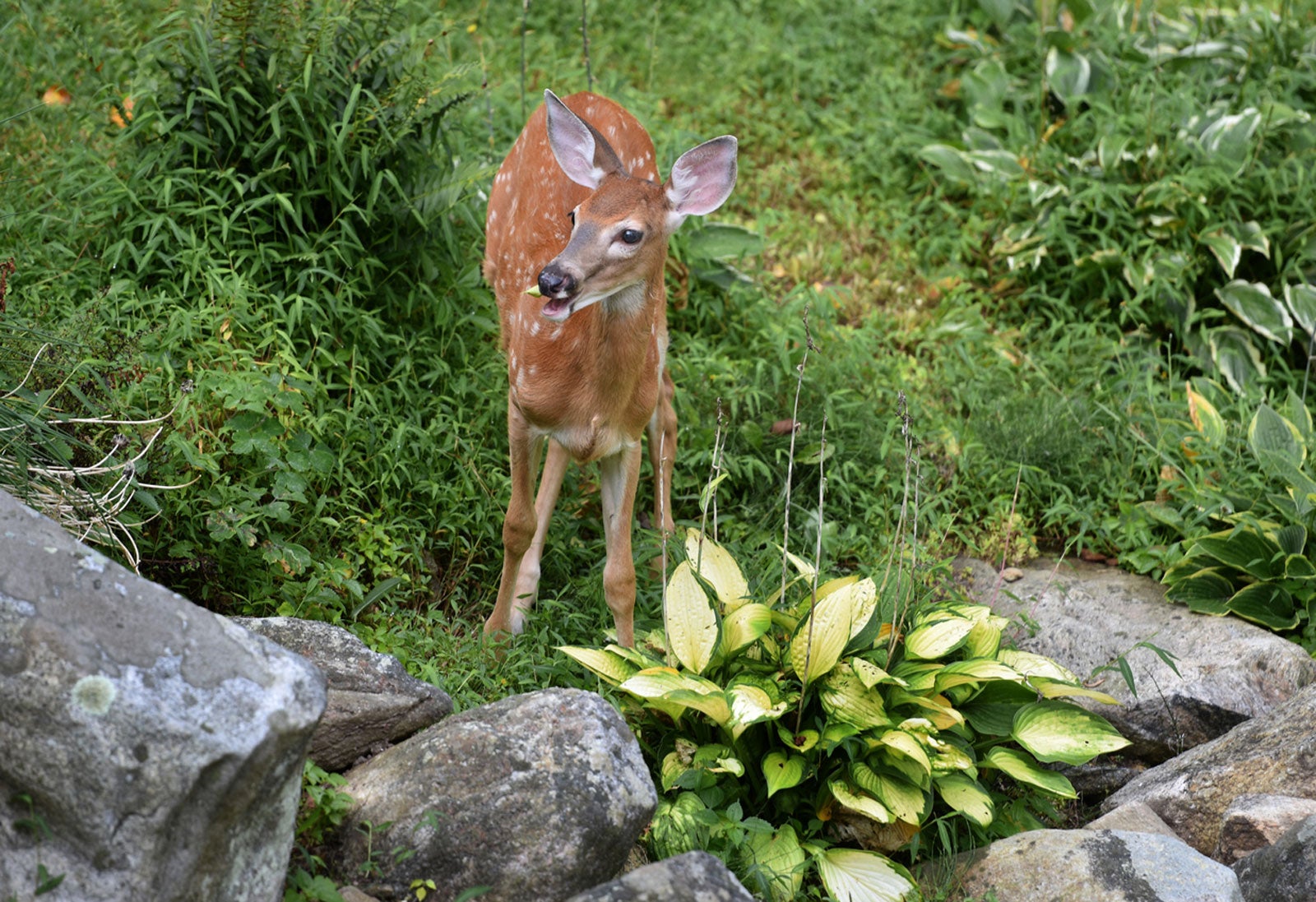

Deer can be both a blessing and a curse. It’s so lovely to see a doe and fawn early on a Sunday morning, standing in the mist, nibbling on your garden. And that’s the problem. They can eat through a garden in no time.
Whether you love or hate deer, or have a more complicated relationship with them, there is one important question to answer: Can you use deer manure in gardens?
Fertilizing with Deer Manure
Using manure as a fertilizer is not a new practice. People long ago discovered that manure is full of nutrients. Deer droppings on plants or on your grass may provide some additional nutrients, depending on what those deer have eaten.
In the wild, the deer diet is pretty limited, meaning their droppings are not very nutrient-rich. But suburban deer and those feeding around farms may have more nutrients to offer in their waste.
Just letting droppings sit on your lawn may provide some nourishment, but it is hardly enough to replace a robust fertilizing program. To really get the benefits of the extra nutrients, you would need to collect piles of deer droppings and spread them more evenly around your lawn and in beds.
Safety Issues of Deer Poop in the Garden
Any type of manure that is raw poses a risk of contaminating crops with pathogens. You can potentially get sick from this kind of fertilizing. Those at highest risk are young children and the elderly, people with compromised immune systems, and pregnant women.
The recommendation from the National Organic Program is to allow 90 days from the time of application of a raw manure fertilizer to the harvest of any crop that doesn’t touch the soil. For crops that do touch the soil, the recommendation is 120 days.
Gardening tips, videos, info and more delivered right to your inbox!
Sign up for the Gardening Know How newsletter today and receive a free copy of our e-book "How to Grow Delicious Tomatoes".
For these safety reasons, you may want to reconsider using deer droppings as fertilizer in a vegetable garden. Or, if you do want to make use of it, run it through a hot composting system first. It needs to hit 140 degrees Fahrenheit (60 degrees Celsius) for at least five days and be composted for 40 days or longer in total to kill any pathogens.
If you do choose to handle deer droppings to use in your lawn or beds, always wear gloves. Wash and disinfect all tools you use to handle it, and wash your hands thoroughly when finished.

Mary Ellen Ellis has been gardening for over 20 years. With degrees in Chemistry and Biology, Mary Ellen's specialties are flowers, native plants, and herbs.
-
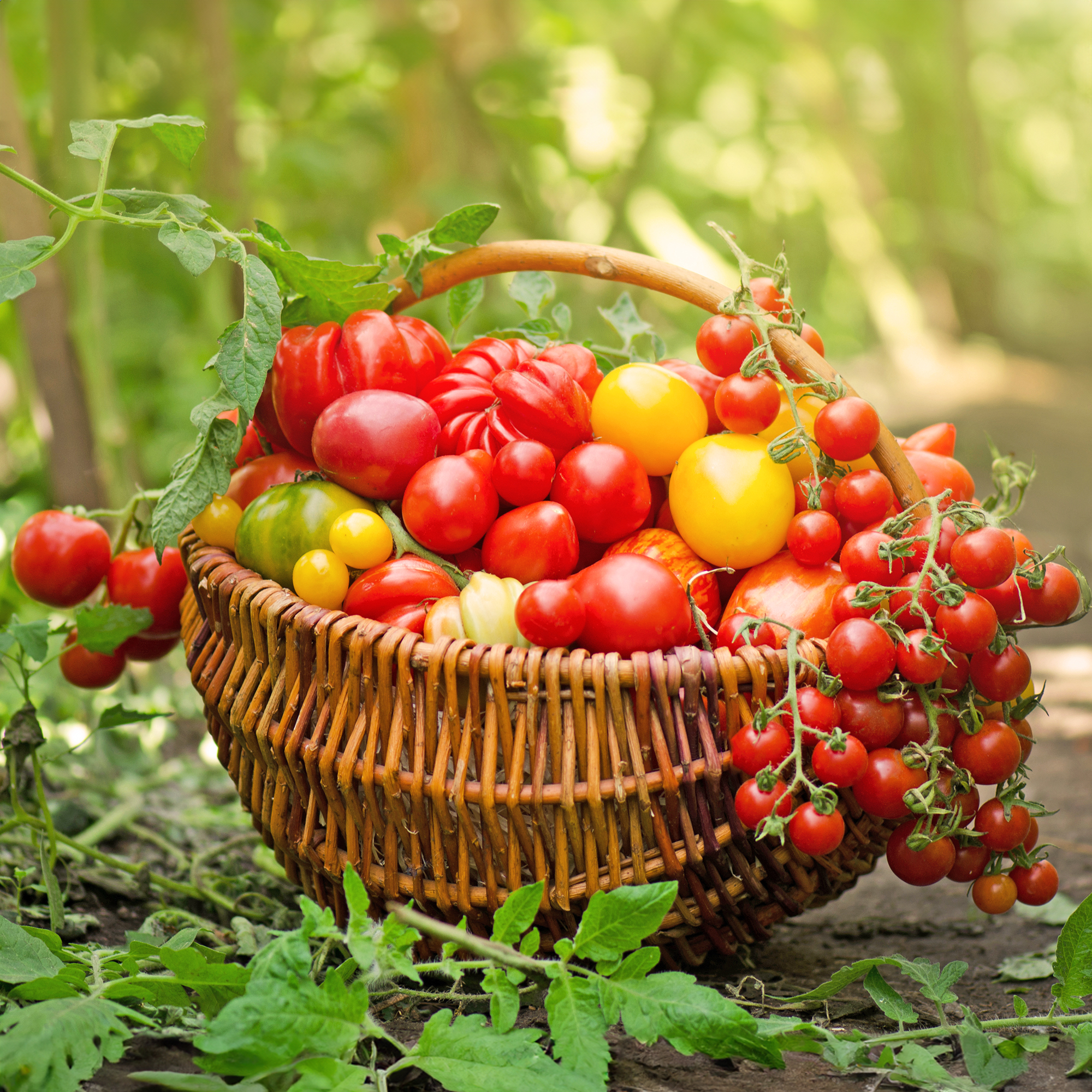 Types Of Tomatoes Explained: Explore The Many Wonderful Shapes, Colors, Flavors, & Best Uses
Types Of Tomatoes Explained: Explore The Many Wonderful Shapes, Colors, Flavors, & Best UsesThe world of tomato varieties is vast and fascinating. Learn about the key types to grow in your garden, tailored to your preferences and space.
By Amy Grant
-
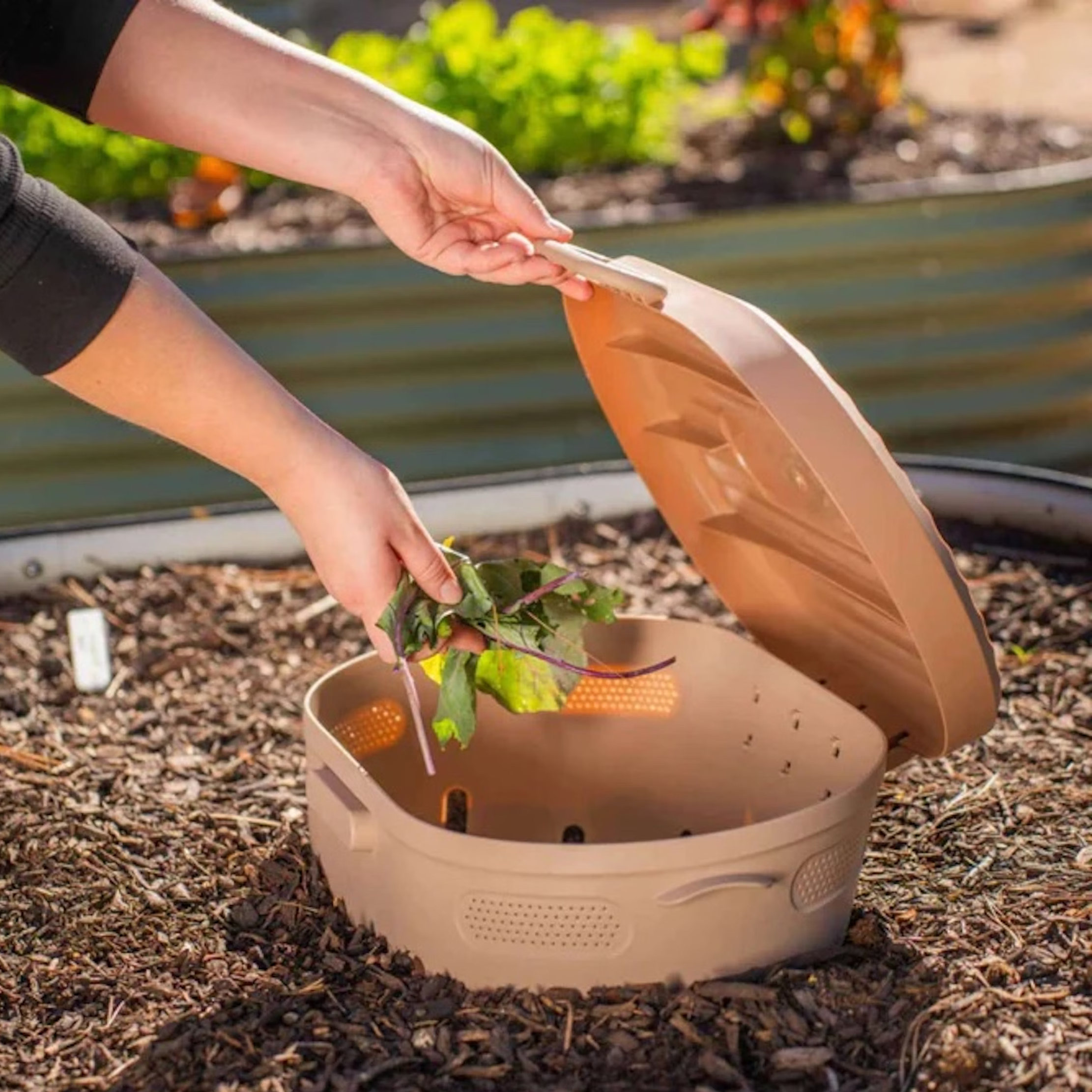 Try The Trend – Turn Any Bed Into A Keyhole Garden With This Clever In-Ground Composter
Try The Trend – Turn Any Bed Into A Keyhole Garden With This Clever In-Ground ComposterKeyhole gardening is an efficient and sustainable practice that saves space. Get started on this DIY project quickly and easily with an in-ground composter.
By Bonnie L. Grant
-
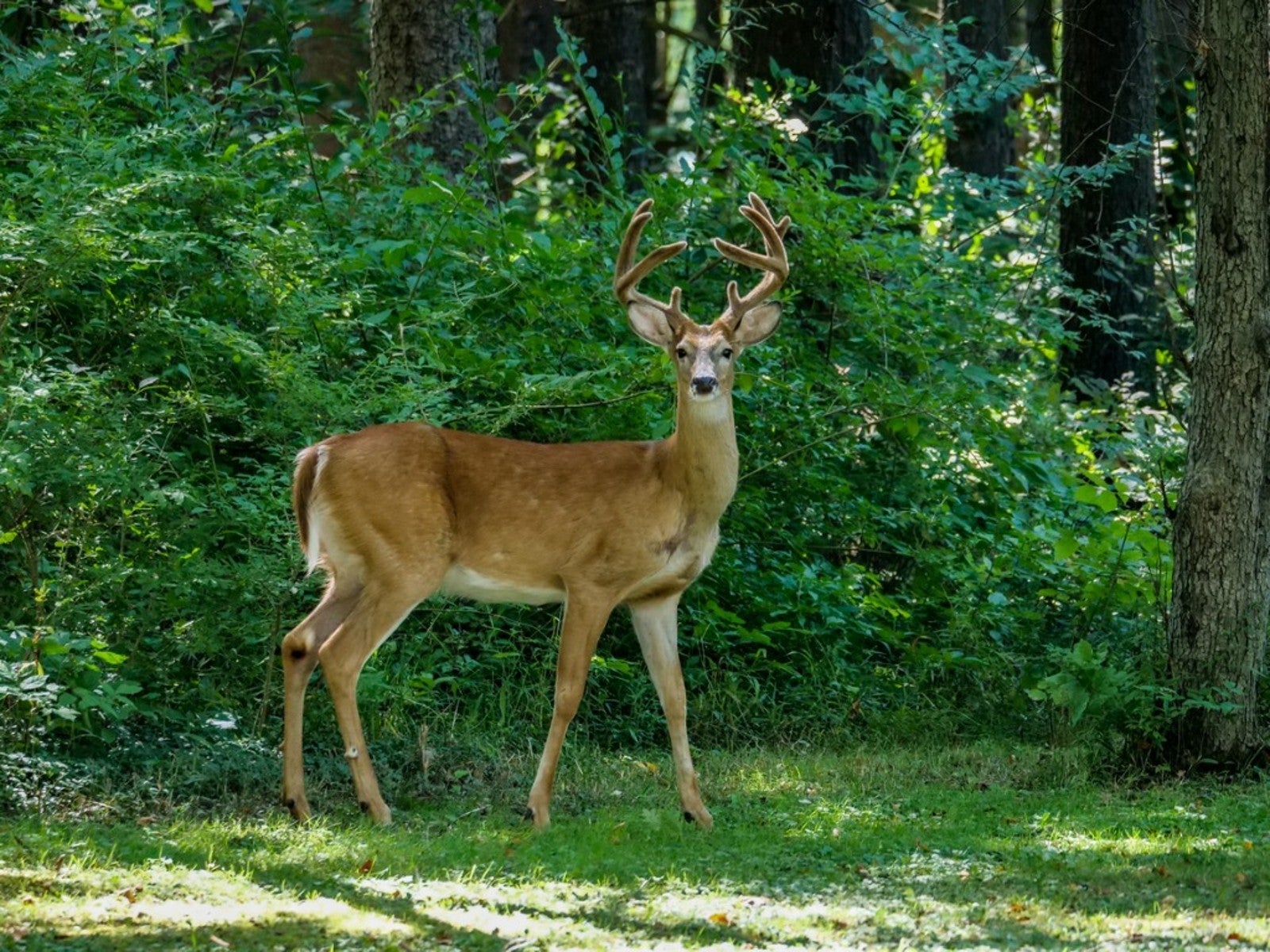 Deter Deer And Prevent Ticks By Getting Rid Of Honeysuckle
Deter Deer And Prevent Ticks By Getting Rid Of HoneysuckleWe don’t usually think of sweet-smelling honeysuckle as being unsafe, but the deer love it. and where there are deer there are often ticks. Read on for more reasons to avoid non-native honeysuckles.
By Mary Ellen Ellis
-
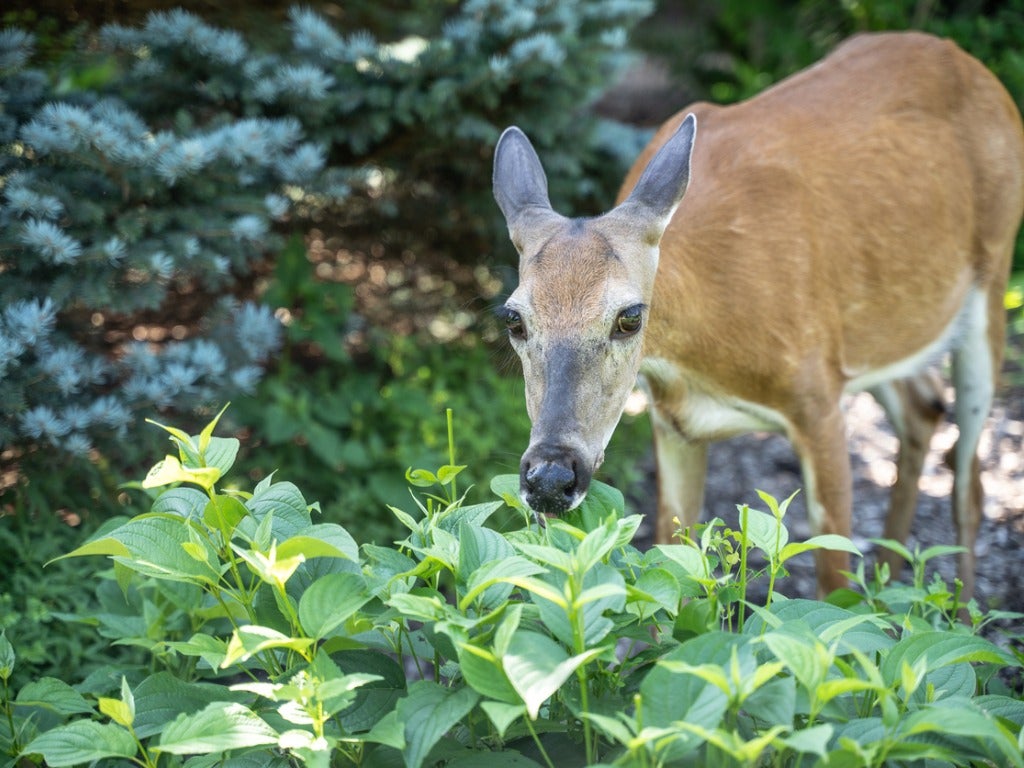 Deer Proof Shade Flowers: Choosing Deer Resistant Flowers For Shade
Deer Proof Shade Flowers: Choosing Deer Resistant Flowers For ShadeWatching deer move through your property can be a peaceful way to enjoy nature. However, they can become a nuisance if they start eating your flowers. If you have a shady garden bed, add flowers they will have no interest in. Click here to learn more.
By Mary Ellen Ellis
-
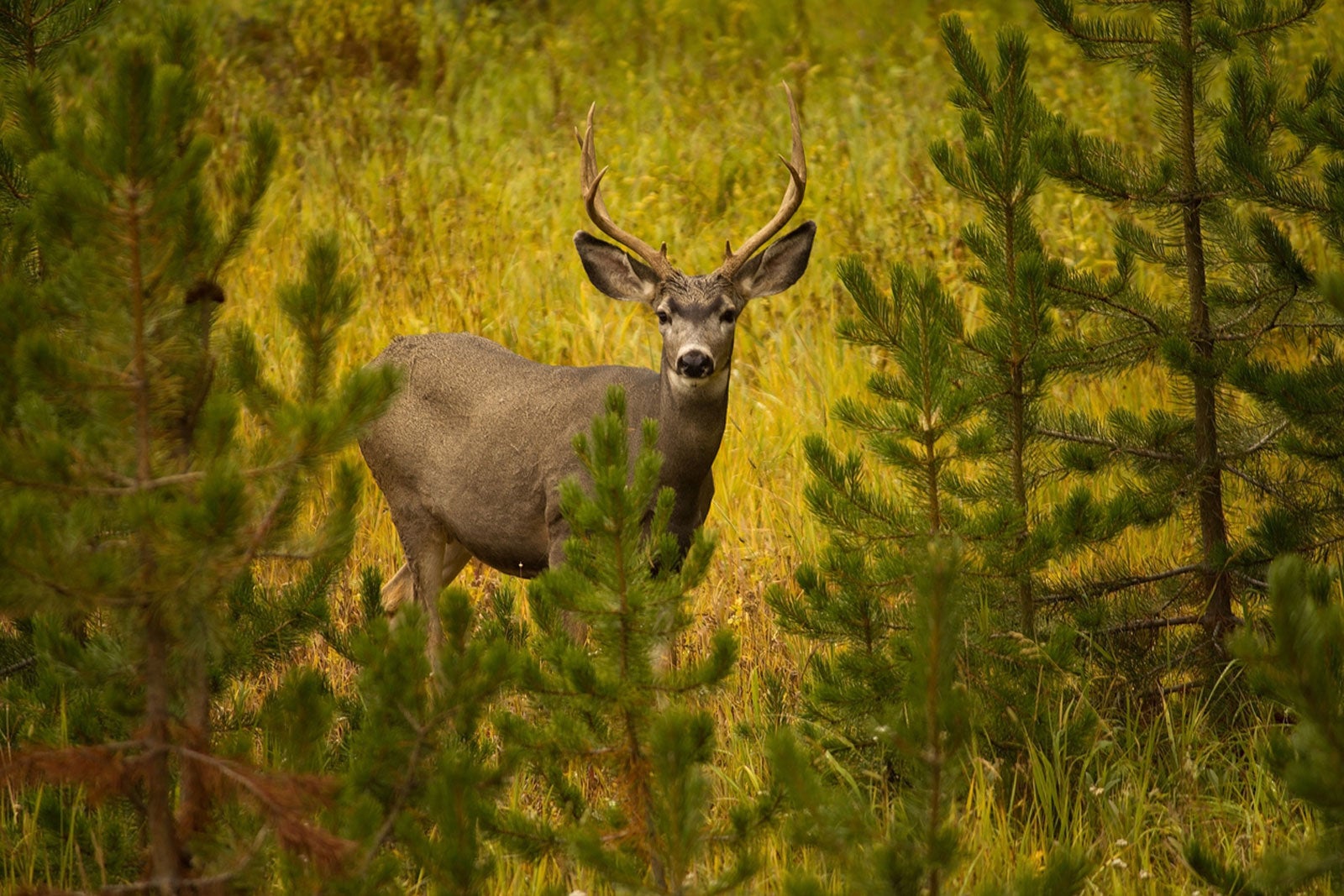 Deer Proof Evergreens: Are There Evergreens Deer Won’t Eat
Deer Proof Evergreens: Are There Evergreens Deer Won’t EatThe presence of deer in the garden can be troublesome. With some proven planting techniques, however, gardeners may be able to reduce the occurrence of damage caused by deer. Planting deer resistant evergreen plants, for example is one method. Learn more here.
By Tonya Barnett
-
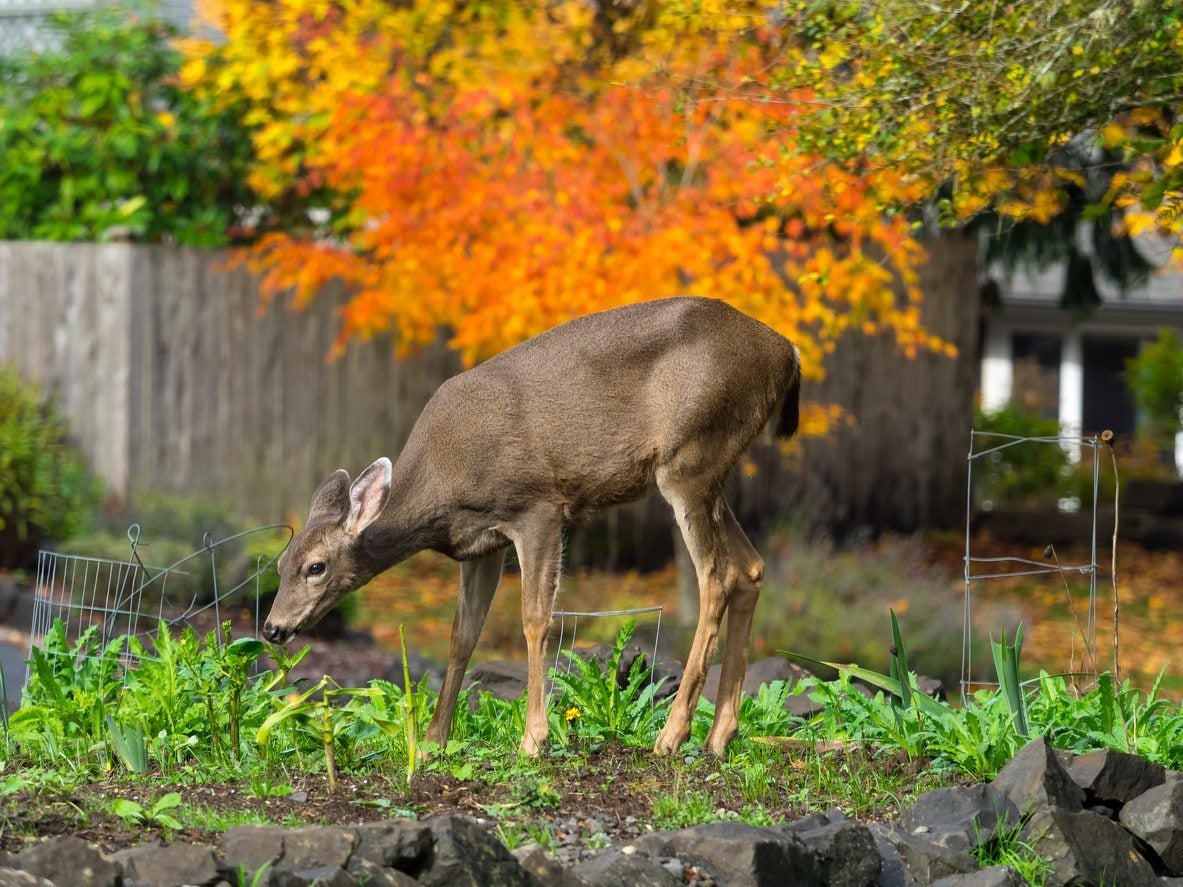 Deer Proof Gardening: What Vegetables Are Deer Resistant
Deer Proof Gardening: What Vegetables Are Deer ResistantThe best defense is a good offense. In deer proof gardening, plants that smell offensive to deer can deter them from their favorite edibles. Planting a garden with edible plants deer don't eat is also a defense. Click here for fruits and vegetables deer won't eat.
By Darcy Larum
-
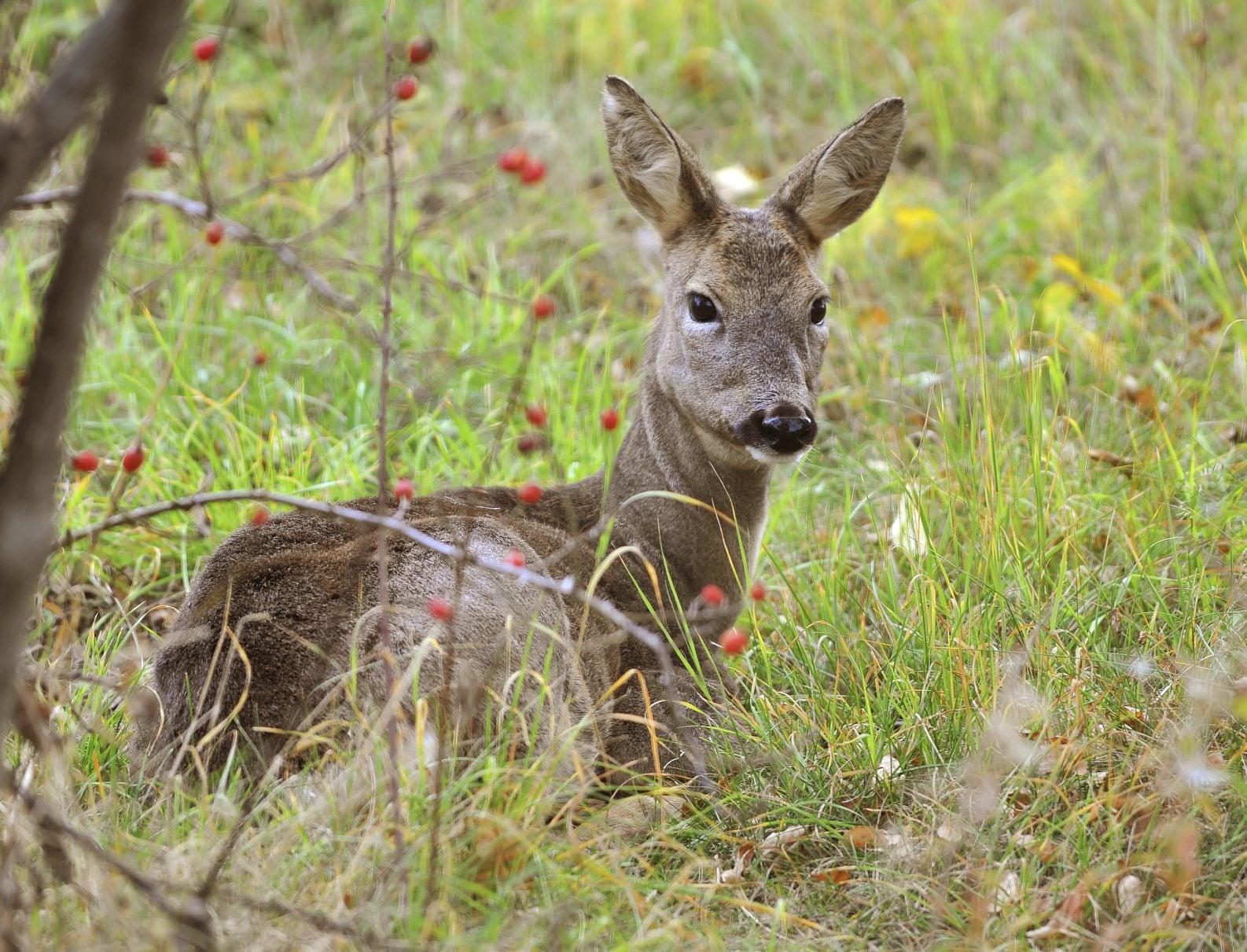 Deer Resistant Garden Plans – Creating A Deer Resistant Garden
Deer Resistant Garden Plans – Creating A Deer Resistant GardenDeer are lovely to watch but not when they are stomping all over your vegetable garden or eating the tops off of your bulbs. Creating a deer resistant garden is a must for any gardener who suffers from these grazing marauders. Learn more here.
By Bonnie L. Grant
-
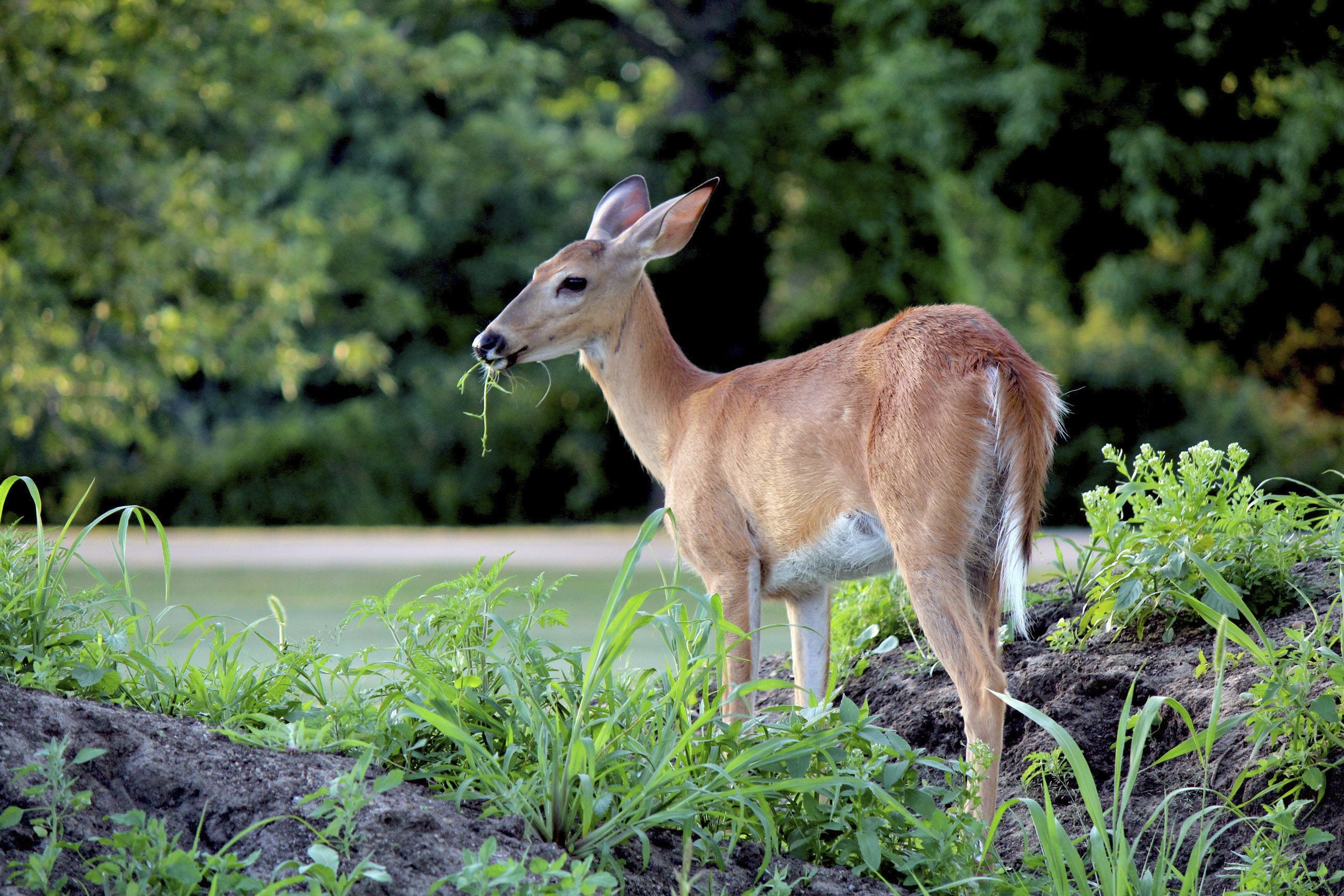 Roses And Deer – Do Deer Eat Rose Plants And How To Save Them
Roses And Deer – Do Deer Eat Rose Plants And How To Save ThemDeer do indeed love the beautiful, succulent growth they find in those meadows and valleys, but they cannot resist a rose garden if there is one close by. Learn how to fix deer damage and prevent more in this article. Click here for more info.
By Stan V. Griep
-
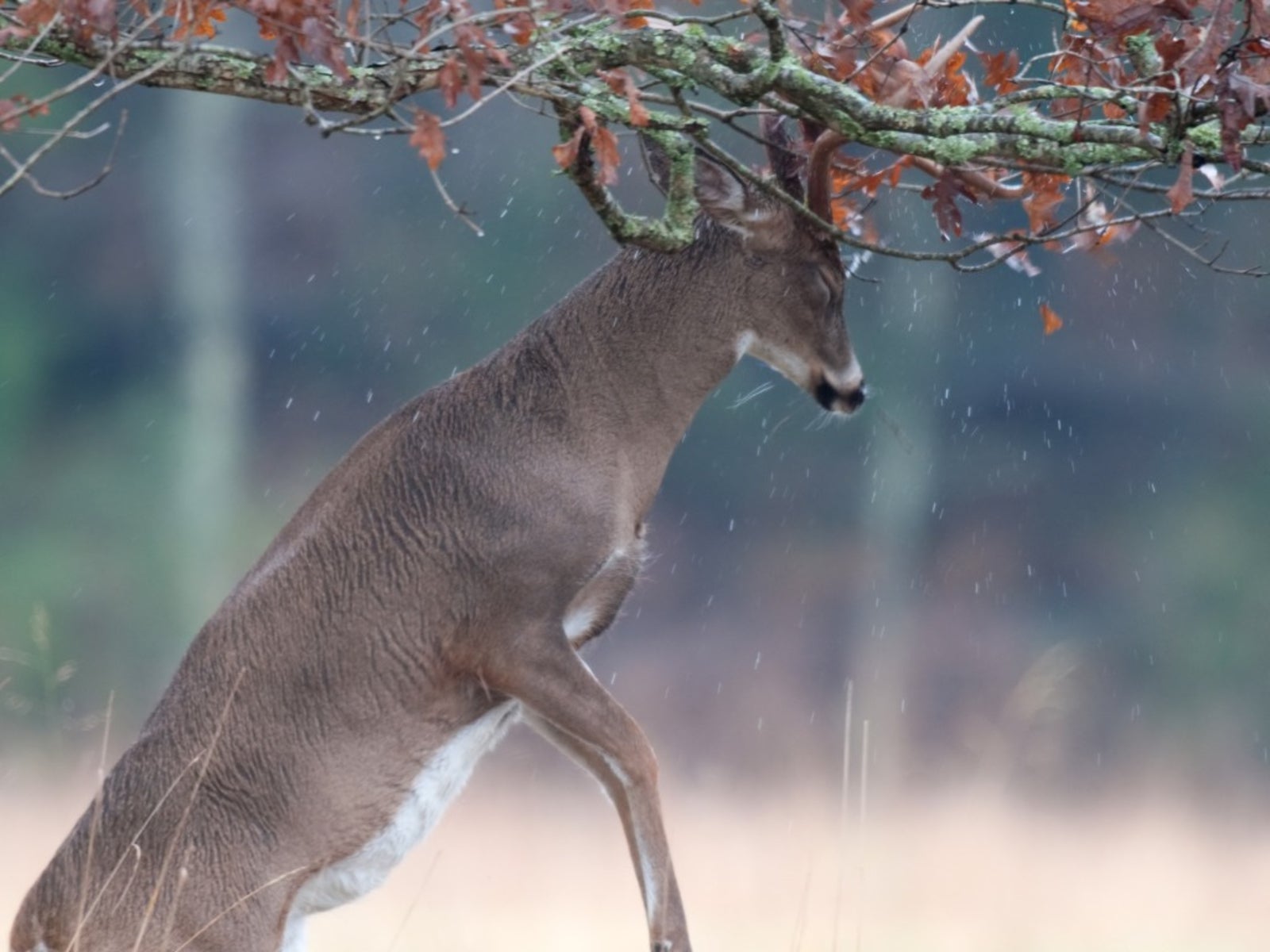 Deer Rubbing Tree Bark: Protecting Trees From Deer Rubs
Deer Rubbing Tree Bark: Protecting Trees From Deer RubsDeer are majestic creatures when they're bounding through open fields and frolicking in someone else's woods. When they come into your yard and start damaging trees, they become something else entirely. Learn more in this article.
By Kristi Waterworth
-
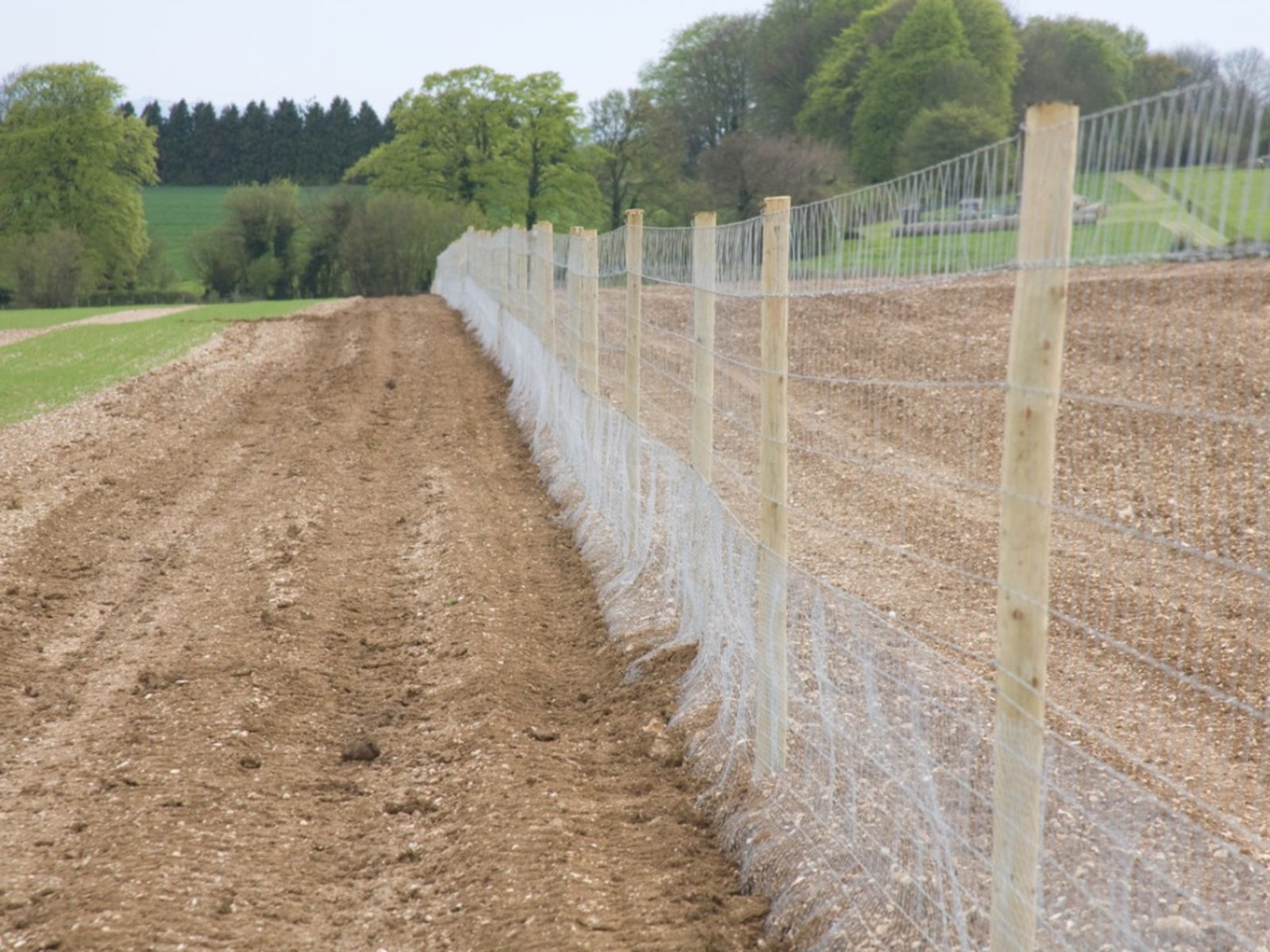 Deer Fencing Designs - How To Build A Deer Proof Fence
Deer Fencing Designs - How To Build A Deer Proof FenceDeer are elegant and graceful creatures but these attributes fall short when they have been in the garden eating your prize plants. If repellents aren't working, think about building a deer proof fence. This article will help.
By Bonnie L. Grant